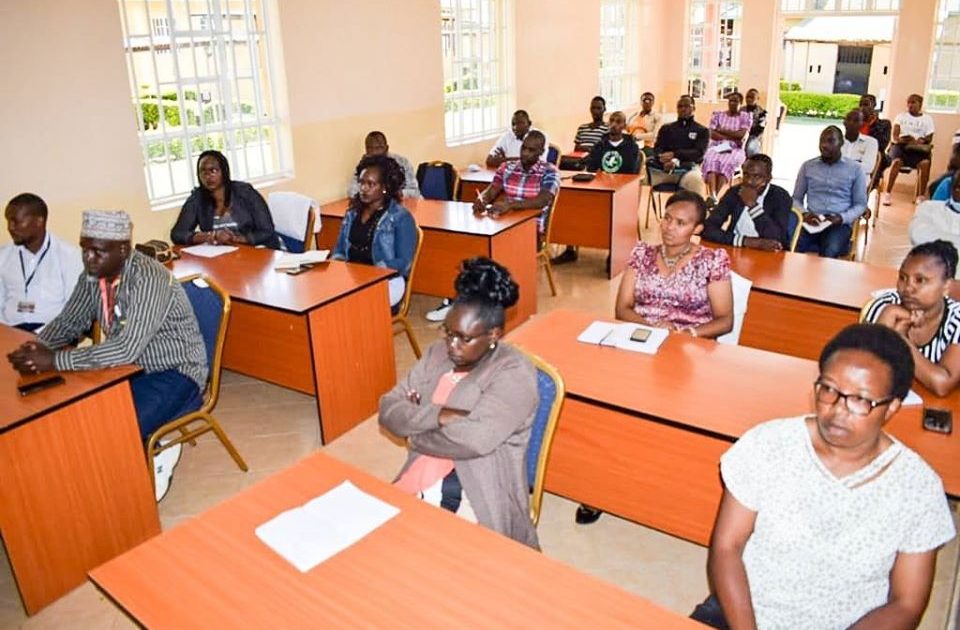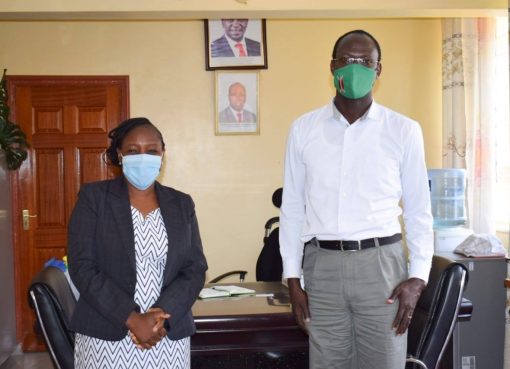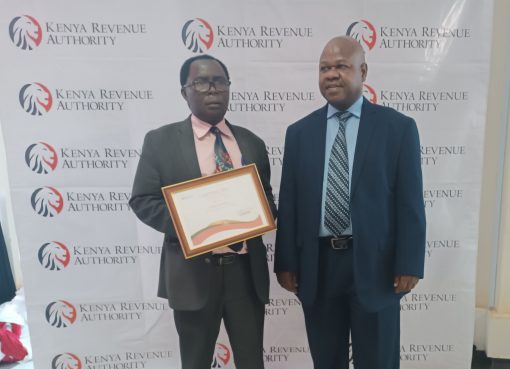Nakuru County is tapping into the experience of 42 health care workers who battled the deadly Ebola Virus in West Africa to help in curbing the spread of Covid-19.
The County Director of Medical Services, Dr. Daniel Wainaina said the volunteers who helped contain the spread of Ebola in Liberia, Guinea, Democratic Republic of Congo and Sierra Leone between 2014 and 2016 come with a wealth of knowledge and the resources to stop the corona virus in its tracks.
“Kenyans bearing the brunt of coronavirus pandemic can derive several lessons from the experts’ experience in containing the Ebola scourge in West Africa. One of the key lessons we have already learnt from the volunteers is the protection of medics who need to be well equipped and kept healthy for them to discharge their duties effectively,” noted Dr. Wanaina.
He said fear-mongering and fake news nearly brought the battle with Ebola to a halt-something he said could be experienced with COVID-19 intervention.
“From the Ebola experience, we have learnt that misleading myths and deliberate misinformation made some people not seek medical care at the right time. With Covid-19 misleading information jeopardizes intervention efforts,” he said.
The fight against rumours and misinformation is a vital part of the battle against this virus,” Dr. Wainaina said during a COVID-19 training session for lab technicians, biomedical experts, nurses and consultant experts at the Nakuru Level 5 Hospital.
He said available evidence has confirmed that a drastic reduction in new Ebola cases was registered once good hygiene measures were in place in hospitals, schools and other public places. This, noted the County Director of Medical Services, was an indication that hand washing was the first line of defense against viruses such as Ebola and coronavirus.
When Sierra Leone found itself in the grip of Ebola in September 2014, authorities imposed an unprecedented 72-hour nationwide lockdown. The government recruited and deployed scores of health teams on a door to door campaign.
“Kenya could learn some good lessons from what Sierra Leone got from the lockdown during the Ebola outbreak. It was a chance for the entire population to reflect on the magnitude of the problem, and collectively look at ways to put it to an end,” observed Dr. Wainaina.
The experts have indicated that at the onset of Ebola Virus outbreak, the principle of “prevention first” proved to be of utmost importance.
“Kenya must tackle the coronavirus epidemic in a similar manner as West Africa handled the Ebola virus. All prevention methods must be adhered to. This entails avoiding contact — as with Ebola, washing hands — as with Ebola, and avoiding public places. We must ensure prevention and control measures before getting to hospitals,” noted County Executive Committee Member for Health, Dr. Zachary Gichuki Kariuki.
Dr. Barrack Opiata, a consultant at a private medical facility in Nakuru indicated that West Africans managed to overcome the Ebola epidemic when they became sincere and truthful about their movements from one country to another.
“Those arriving from other places should voluntarily make themselves available for screening and testing. Kenyans should share information as much as possible with health authorities about their travel itineraries,” he said.
“Once you are infected, be truthful to the world that you have it. The media message should be one that gives truth and hope and both national and county governments should make sure that health facilities are equipped. Coronavirus now, if we compare it to Ebola, is a droplet infection and social distancing is overly important,” Dr. Opiata stated.
“One of our most crucial tasks is to convince people suspected of having corona virus that it is in everyone’s best interest that they be quarantined, isolated and monitored.
“If they show symptoms, we need to convince them to come and receive care in corona virus treatment centres. For this to work, people have to trust health workers. Local leaders need to be incorporated to help spread vital health information that will bring the virus under control,” observed Dr. Opiata.
The World Health Organization Regional Director for Africa, Dr. Matshidisho Moeti stated that one of the most important lessons learnt from Ebola outbreak in dealing with coronavirus pandemic was to start engaging communities early in terms of surveillance and patterns of the illness.
“We learnt from Ebola that to counter incorrect information that circulates during such epidemics, we not only just send out radio messages but also talk to people and hear them,” advised Dr. Moeti.
“We have also built on the capacity put in place for the Ebola outbreak. Some of the laboratory testing capacity currently handling the Covid-19 pandemic was built around Ebola experience,” he said.
Nakuru County has established a Reporting Centre for suspected COVID-19 cases which can be reached on 0724 320 853 and 0722 337 018.
By Anne Mwale





